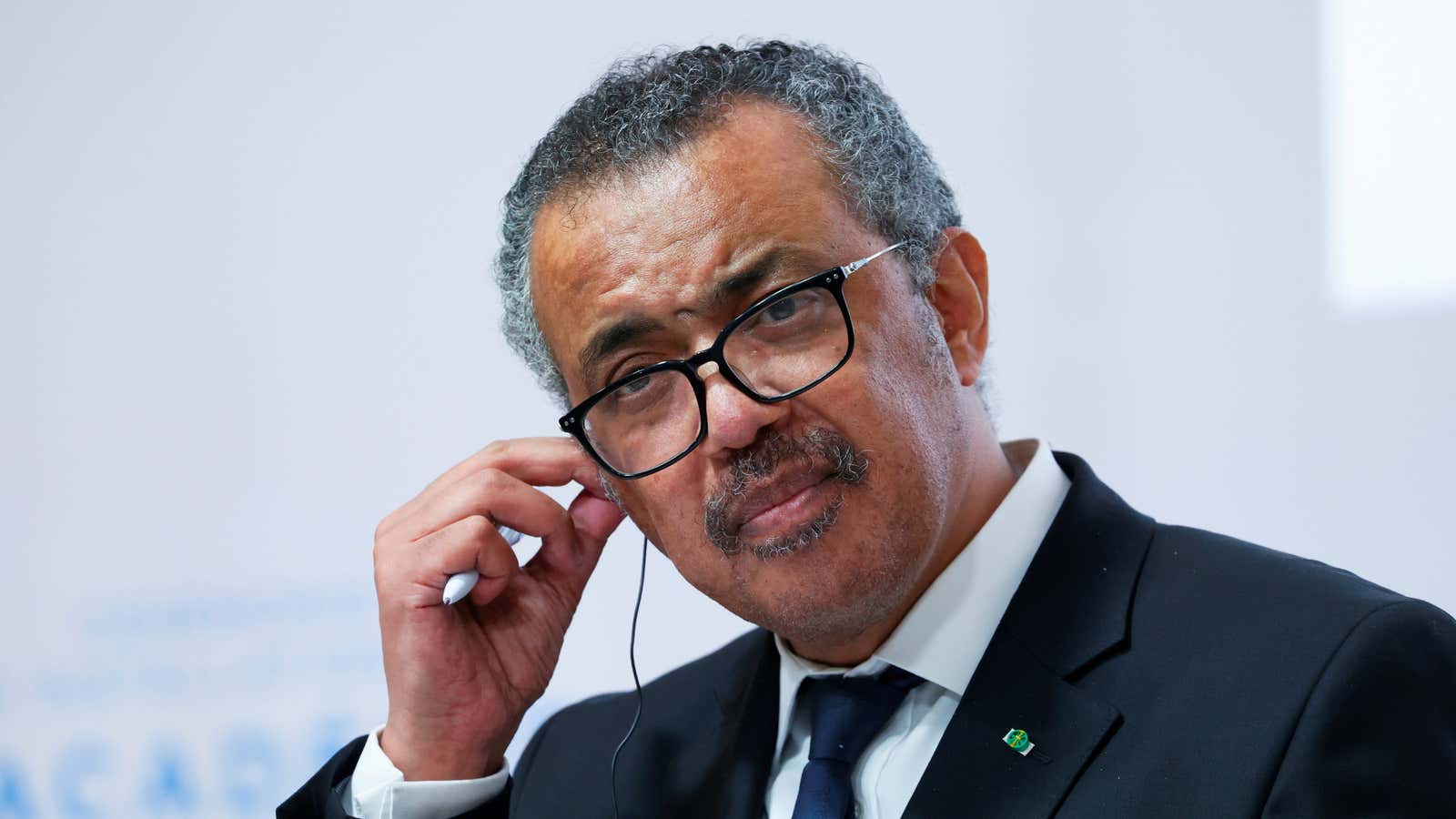On Wednesday (Oct. 6), the World Health Organization recommended the widespread distribution of a vaccine against malaria, a life-threatening disease that kills roughly half a million people each year, most in sub-Saharan Africa.
WHO director-general Tedros Adhanom Ghebreyesus, who started his career as a malaria researcher, called the vaccine a “breakthrough” and estimated that it could save the lives of tens of thousands of children each year. In 2019, children under the age of five accounted for two-thirds of malaria deaths worldwide.
While the WHO recommendation has been applauded by researchers and scientists who have spent their careers working on measures to eradicate the disease, the vaccine may face a long road before it’s deployed widely in the countries that most need it.
What do we know about the malaria vaccine?
The vaccine recommended for use by the WHO is called Mosquirix or RTS,S. Its manufacturer, the UK pharmaceutical company GlaxoSmithKline, has been developing and testing it for more than three decades. It works by targeting the parasite Plasmodium falciparum, one of the five that causes malaria. P. falciparum is most prevalent in Africa and responsible for most malaria deaths worldwide.
In clinical trials of 15,000 young children and infants between 2009 and 2014, the vaccine reduced cases of deadly severe malaria by 29%, according to the WHO, and prevented approximately 39% of cases in four years of follow-up.
Malaria is a tricky disease against which to develop vaccinations because its biology is very complex, says Prakash Srinivasan, an assistant professor with the Johns Hopkins Malaria Research Institute at the Bloomberg School of Public Health. Its genome consists of more than 5,000 protein-encoding genes, compared to six that have been confirmed in the Covid-19 genome.
“It’s like a Swiss Army knife,” says Sean Murphy, a University of Washington professor who has been working on developing malaria vaccines since 2008. “There’s many different things it can throw at you.”
While the current efficacy rates may seem quite low, “30% to 40% is still a huge deal when it comes to malaria because of the sheer number of kids who are lost every year,” Srinivasan says. For that reason, he adds, the news of WHO’s recommendation is welcome and will undoubtedly save lives if it can reach the most vulnerable populations. However, Murphy adds, a more efficacious vaccine will likely be needed in order to totally eradicate the disease.
Hurdles to getting shots in arms
While this malaria vaccine crossed the first hurdle with WHO’s sign-off, it’s likely to take years before shots are widely deployed. Aid groups including Gavi, the global vaccine alliance, released a statement today in support of the WHO decision. Gavi’s board will next decide whether to put money toward a malaria vaccination program. If that happens, the rollout process is expected to take at least a year.
Governments will have to balance many different public health concerns as they decide how much to invest in malaria vaccines. Less than a third of African countries have vaccinated 10% of their populations against Covid-19 thus far, and the pandemic has slowed childhood immunization campaigns against other diseases like yellow fever, measles, and polio. In light of such ongoing concerns, “governments are going to have to decide if they can get behind expenditure needed to invest in this moderately effective vaccine,” says Murphy.
Srinivasan says it will be vital for Western governments to contribute funding to ensure that a malaria vaccine gets to the countries that need it most. Though the US and other Western countries have argued that their own citizens should receive the Covid-19 vaccine first, historically the US has been heavily involved in global malaria efforts and remains the largest donor government. Srinivasan is hopeful that malaria vaccines could quickly reach those in need: “This is not a disease of the Western countries for the most part. You could make an argument that potentially holding back vaccines is not going to be an issue.”
